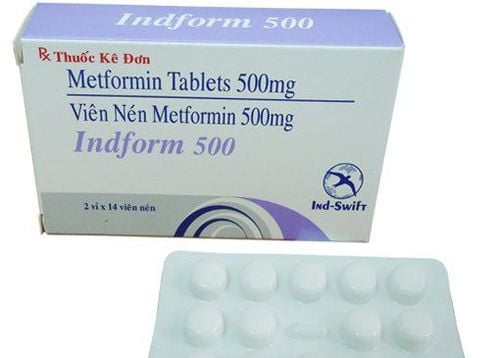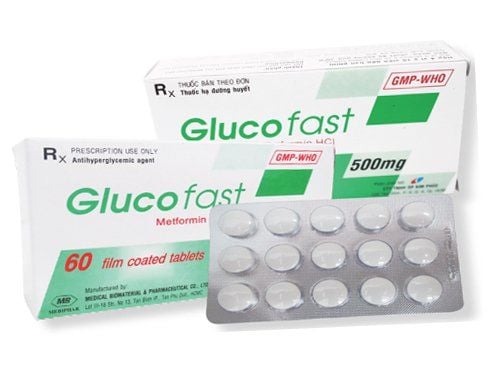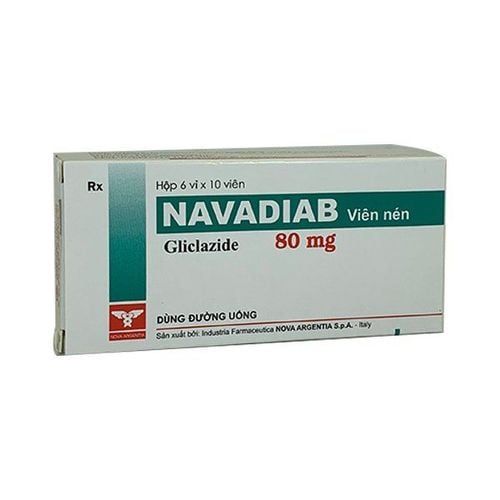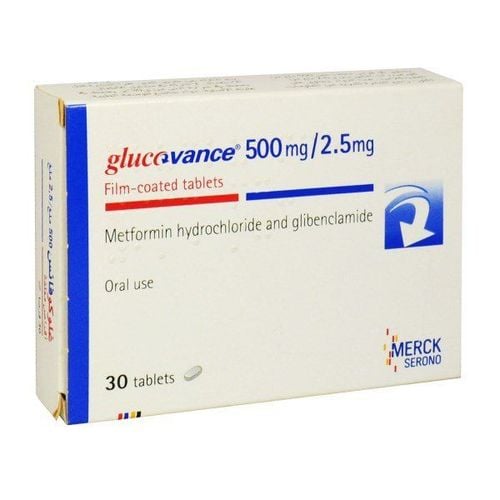This is an automatically translated article.
Type II diabetes is a chronic disease that is extremely common in today's population. Accordingly, antidiabetic drugs are also very diverse and rich. Besides oral drugs, injection drugs bring more rapid and obvious effects, including Byetta.
1. What are the effects of Byetta?
Byetta has the active ingredient Exenatide, which is an injectable diabetes medication. Byetta's effect is to control blood sugar, it helps the patient's pancreas to produce insulin more efficiently.
Byetta is used together with diet and exercise to improve blood sugar control in adults with type 2 diabetes. Byetta is not used to treat type 1 diabetes.
2. Instructions for using Byetta
Use Byetta exactly as prescribed by the doctor and the instructions on the label, the patient can read the attached instruction sheet. Byetta is injected under the skin, medical staff can teach patients how to use Byetta properly. Only prepare Byetta injection when the patient is ready to inject, which means it must be administered immediately after reconstitution.
Byetta is usually given 2 times a day, before breakfast and dinner. Do not use Byetta after meals. Note that patients must use Byetta within 60 minutes (1 hour) before eating. The injections should be given at least 6 hours apart.
3. Dosage of Byetta
Usual adult dose of Byetta for type 2 diabetes:
Initial dose: 5 mcg subcutaneously 2 times a day for a period of 60 minutes before breakfast and dinner; Maintenance dose: After 1 month, the dose may be increased to 10 mcg subcutaneously, twice daily based on clinical response; Maximum dose: 10mcg x 2 times/day. Byetta has not been studied in patients with a history of pancreatitis, therefore other therapies should be considered in these patients;
4. Notes when using Byetta
Patients should not use Byetta if they have severe kidney disease (or are on dialysis), or the patient has digestive delay or diabetic ketoacidosis; This medicine should not be used if Byetta has ever caused a patient to experience low levels of platelets in the blood; Stop using Byetta and call your doctor at once if you have nausea and vomiting, accompanied by severe pain in your upper abdomen that radiates to your back; Byetta should not be used together with rapid- or short-acting insulin. Do not use Byetta together with Bydureon. To make sure Byetta is safe to use, tell your doctor if you have:
Kidney disease or a history of kidney transplant; Stomach disorders; Pancreatitis; Gallstones; Follow your doctor's instructions about the use of Byetta if you are pregnant or planning to become pregnant. Controlling diabetes is extremely important during pregnancy because high blood sugar can cause complications for both mother and baby; Exenatide can make birth control pills less effective, so if you are taking birth control pills, take them at least 1 hour before Byetta injection; It may not be safe for a patient to breastfeed while using Byetta, so talk to your doctor about any possible risks; Byetta is not approved for use in children under 18 years of age. Patients may experience low blood sugar (hypoglycemia) and feel very hungry, dizzy, irritable, confused, anxious, or shaky. To quickly treat this hypoglycemia, eat or drink a fast-acting source of sugar (juice, hard candy, crackers, raisins, or non-diet soda). Your doctor may instruct you to carry a Glucagon injection kit with you in case you have severe hypoglycemia. Make sure the sick person's family or close friends know how to give them this injection in an emergency. In addition, during treatment with Byetta, patients should also watch for signs of high blood sugar (hyperglycemia) such as increased thirst or urination. Blood sugar levels can be affected by stress, illness, surgery, exercise, alcohol use, or skipping meals. Use the needle and syringe only once to inject Byetta, then dispose of them properly. Never share Byetta pens or syringes with another person, even if the needles have been changed. Sharing these devices may allow infection or disease to be passed from one person to another. Exenatide can lower a patient's platelet count for up to 10 weeks after they stop using Byetta. Patients need regular medical check-ups while using Byetta and for a short time after stopping. Byetta is only one part of a diabetes treatment program, the complete program also includes diet, exercise, weight control, and regular blood sugar testing. For unopened, unused Byetta pills, keep the medicine in the original container, refrigerate and use until the expiration date, do not freeze the medicine. Store the opened pen (byetta is in use): it should be stored at room temperature and used within 30 days, do not store the injection pen with the needle attached. Extended-release exenatide is not recommended as first-line therapy because of uncertainty about the risk of thyroid C-cell tumors; Patients may experience transient (approximately 2 - 4 weeks) hyperglycemia when switching from immediate-release to extended-release Exenatide; An overdose of Byetta can cause severe nausea and vomiting, signs of low blood sugar (headache, hunger, irritability, dizziness, feeling shaky). Byetta should not be mixed with insulin in the same syringe; Avoid alcohol because alcohol can lower the patient's blood sugar.
5. Side effects of Byetta
Common side effects of Byetta include:
Indigestion, nausea, vomiting; Diarrhea, constipation; Itching and swelling at the injection site. Get emergency medical help if the patient has signs of an allergic reaction to Byetta: hives, itching; fast heart rate, difficulty breathing, lightheadedness, swelling of face, lips, tongue, throat.
Some people using Byetta have had severe bleeding or died from low platelets (blood cells that help blood clot). Stop using Byetta and call your doctor at once if you experience unusual bleeding or bruising.
Stop using Byetta and call your doctor at once if you have:
Pancreatic or gallbladder problems, upper abdominal pain spreading to your back, nausea and vomiting, fever, fast heartbeat, yellowing of the skin/eyes; low blood sugar--headache, hunger, sweating, irritability, dizziness, nausea, fast heartbeat and feeling anxious or shaky; Kidney problems: urinating little or no, urinating painful or difficult, swollen feet or ankles, feeling tired or short of breath.
6. What drugs can affect Byetta?
If the patient is taking the following medicines, take them at least 1 hour before using Byetta:
Antibiotics; Birth control pills. Exenatide can make it harder for your body to absorb other medicines you take by mouth. Tell the doctor about all current medications and any medications the patient has recently started or stopped taking, especially:
Blood pressure medications; Diuretic ; Insulin or oral diabetes medication; Analgesic; Lovastatin; Warfarin.
Please dial HOTLINE for more information or register for an appointment HERE. Download MyVinmec app to make appointments faster and to manage your bookings easily.













